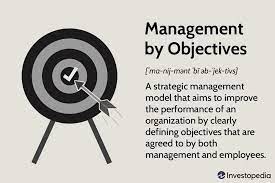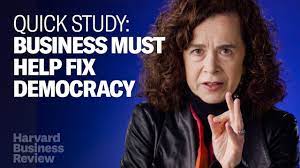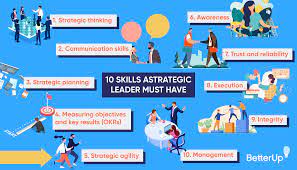Finding Your Purpose: 5 Ways To Bring More Meaningfulness Into Your Work
For many people, finding a sense of purpose in their work can be a challenge. However, there are some things you can do to bring more meaning into your work life. Here are five suggestions:
1. Find out what organizational leadership masters say about your field or company.
2. See how your work fits into the bigger picture of the organization or company.
3. Talk to your boss or supervisor about ways you can contribute more to the company or organization.
4. Get involved in community projects or volunteer work that is related to your field.
5. Read books or articles about how to find meaning in work.
spiritual leadership
When it comes to finding your purpose in life and work, spiritual leadership is a key ingredient. By definition, spiritual leadership is “the art of leading people spiritually.” In other words, it’s about helping others find their own sense of purpose and meaning in life.
There are many different ways to be a spiritual leader. Here are five of the most important:
1. Be authentic and transparent.
The first step to being a spiritual leader is being authentic and transparent about who you are and what you believe in. People can sense when you’re being phony, so it’s important to be genuine in your interactions with others. When you’re open and honest about your own journey, it helps others feel more comfortable sharing their own stories with you.
2. Listen more than you talk.
One of the most important qualities of a spiritual leader is the ability to really listen to others. It’s not enough to just hear what someone is saying; you need to be present and fully engaged in the conversation. Ask questions, seek clarification, and show that you care about what the other person is saying.
3. Create a safe space for vulnerability.
In order for people to feel comfortable sharing their stories with you, they need to know that they can do so without judgment or criticism. Create an environment where people feel safe enough to be vulnerable and share their deepest thoughts and feelings. This includes active listening, as well as maintaining confidentiality if requested
Define what purpose means to you.
To me, the purpose is about finding a sense of meaning and direction in life. It’s about setting goals and working towards them, even when it’s tough. It’s about staying positive and motivated, even when things get tough. The purpose is what gets us up in the morning and keeps us going, even when we don’t feel like it.
Understand your values and what you’re passionate about.
Values are the things that you believe are important in life. They guide your decisions and actions. Passion is an intense, enthusiastic feeling. It’s what drives you to do something. Knowing your values and what you’re passionate about can help you live a more fulfilling life.
Your values might include things like family, friends, community, respect, honesty, fairness, or environmentalism. You might be passionate about education, health care reform, or animal rights. Once you know what’s important to you and what issues you care deeply about, you can start making choices that reflect those values and passions.
You don’t have to change everything overnight – small steps in the right direction can make a big difference over time. But by living according to your values and pursuing your passions, you’ll feel more fulfilled and happier with your life choices.
Consider what skills and talents you have to offer.

For many people, the hardest part of starting their own business is coming up with an idea. But once you have an idea, it’s important to consider what skills and talents you have to offer. Do you have experience in a particular industry? Are you good at marketing or sales? Do you have experience managing people or finances? These are just some of the skills that can be helpful in starting and running your own business. If you don’t feel like you have all the necessary skills, that’s okay. There are plenty of resources available to help you learn what you need to know. The most important thing is to get started and start building your dream.
Find ways to contribute to something larger than yourself.
One of the most rewarding things you can do in life is to find ways to contribute to something larger than yourself. This could be your community, your country, or even the world. When you make a difference in the lives of others, you not only feel good about yourself, but you also make the world a better place. There are many ways to contribute to something larger than yourself. You can volunteer your time and talents to help others. You can donate money or goods to worthy causes. You can also simply be a good role model for others by living your life with integrity and compassion. No matter how you choose to contribute, know that you are making a positive difference in the world.
Be open to change and growth.
Don’t be afraid to change your opinion or perspective on something. Allow yourself to grow and learn from new experiences. Be open to hearing other people’s perspectives and learning from them. Change can be scary, but it can also be exciting and full of opportunity. Embrace change and growth in your life, and you’ll be sure to reach new heights.
15 commitments of conscious leadership
1. A commitment to yourself: Becoming a conscious leader starts with a commitment to yourself. This means being honest about your motivations, your values, and your aspirations. It means finding time for self-reflection and making choices that align with your highest goals.
2. A commitment to others: Leaders who are conscious of their impact on others take responsibility for their words and actions. They strive to create a positive ripple effect in the lives of those around them. They are open to feedback and willing to adjust their behavior when necessary.
3. A commitment to growth: Conscious leaders are lifelong learners. They understand that there is always room for improvement and they are open to new ideas and perspectives. They know that growth leads to greater success both individually and collectively.
4. A commitment to excellence: Conscious leaders set high standards for themselves and those they work with. They are constantly striving for ways to improve their performance and the quality of their work.
5. A commitment to integrity: Integrity is at the heart of conscious leadership. Leaders with integrity live their values and act in alignment with their beliefs. They are honest in their dealings with others and they hold themselves accountable for their actions.
6. A commitment to authentic relationships: Conscious leaders know that relationships are key to success both personally and professionally. They cultivate trust by being open, honest, and authentic with those they interact with. They also create safe environments where everyone can be heard and respected.





